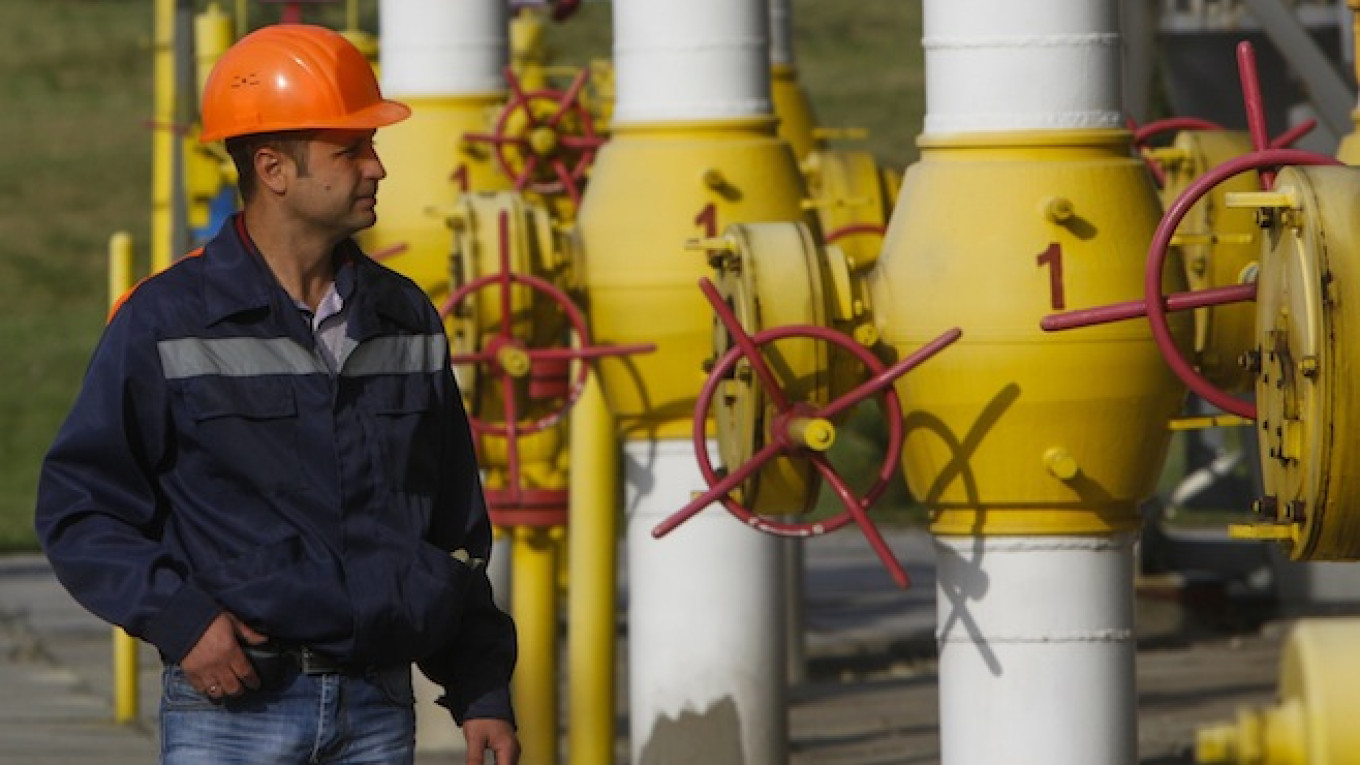Lithuania will be able to survive without Russian gas after its liquefied natural gas (LNG) terminal starts up soon, redrawing the energy map for the Baltic states, President Dalia Grybauskaite said Tuesday.
The floating LNG import terminal at the port of Klaipeda is planned to open on Oct. 27, ending the supply monopoly of Russia's Gazprom and isolation from global gas markets. Commercial deliveries are due to start after the terminal's testing in the beginning of 2015.
Importing super-cooled gas by tankers will not only ensure Lithuania's energy security, but transform relations with its former Soviet master, Russia, Grybauskaite said in an interview.
"For us this would give a lot of leverage and freedom in decision making... Nobody will be able to blackmail or force us to pay the political price," she said from her office in Vilnius. "And this is the best result."
Lithuania will be able to meet all the gas needs of its 3 million citizens, and also supply LNG to Baltic neighbors Latvia and Estonia.
"We will have no dependence on Gazprom supplies. In the case of gas supply disruptions, our terminal can serve and fulfil about 90 percent of the three Baltic states' gas supply needs," Grybauskaite said.
The terminal will have a capacity to supply 4 billion cubic meters (bcm) per year compared to less than 5 bcm of total consumption of the three Baltic states. To supply them, Lithuania needs to upgrade its pipelines to Latvia, which is expected to be done by end-2015.
Initially, Lithuania plans to buy 0.54 bcm of gas per year, enough to cover about a quarter of the its gas needs, from Norway's Statoil.
Its long-term gas supply contract with Gazprom expires at the end of 2015.
"We will have an agreement with Gazprom only if they change the price formula, if it will be a spot price and if they participate equally with others in the gas market," Grybauskaite said.
Should Gazprom cut supplies, Lithuania will look to buy more LNG cargos on the spot market, and had a month-long reserves at Latvia's Incukalns underground gas storage, Grybauskaite said.
"So really, we don't care anymore (about Russia gas supply cuts)... I'm not concerned about gas supplies for the upcoming winter, at least for Lithuania."
Security Concerns
She also said she was not concerned about the terminal's security. Nearby Sweden mobilized ships, troops and helicopters in a search for "foreign underwater activity" at the weekend.
"Our people are training with Norwegian and NATO forces. We are taking that seriously and we will be prepared," she said. Lithuania has been training its special forces to protect the terminal for the past year.
Lithuania meets about 60 percent of its electricity needs via imports, the highest import dependency ratio in the European Union, and relies on Russia.
That dependence will be cut when it starts a 650 MW sub-sea cable to Sweden by end-2015, Grybauskaite said.
The former European Union commissioner said she expected the EU to step up efforts to reduce energy dependence on Russia in the wake of Ukraine crisis.
"The dependence on such an unpredictable and unreliable partner in energy means that... Europe is risking too much, Europe is paying too much and Europe is not competitive because of that," Grybauskaite said.
"We found this solution in Lithuania. In three and half years we succeeded in having the LNG terminal, which allows us to be fully independent from Gazprom."
A Message from The Moscow Times:
Dear readers,
We are facing unprecedented challenges. Russia's Prosecutor General's Office has designated The Moscow Times as an "undesirable" organization, criminalizing our work and putting our staff at risk of prosecution. This follows our earlier unjust labeling as a "foreign agent."
These actions are direct attempts to silence independent journalism in Russia. The authorities claim our work "discredits the decisions of the Russian leadership." We see things differently: we strive to provide accurate, unbiased reporting on Russia.
We, the journalists of The Moscow Times, refuse to be silenced. But to continue our work, we need your help.
Your support, no matter how small, makes a world of difference. If you can, please support us monthly starting from just $2. It's quick to set up, and every contribution makes a significant impact.
By supporting The Moscow Times, you're defending open, independent journalism in the face of repression. Thank you for standing with us.
Remind me later.


